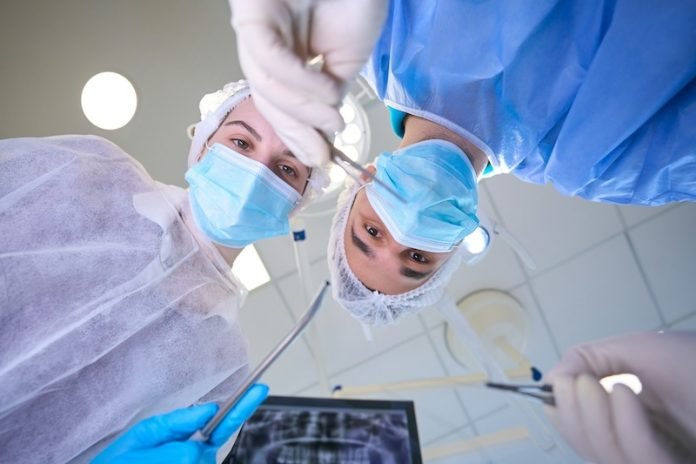
When you’re told that you have high blood pressure, also known as hypertension, it might seem like just another number to keep track of.
However, this condition goes beyond daily inconvenience, especially when surgery is on the table.
Understanding how high blood pressure impacts surgical risks can help you navigate pre- and post-surgery precautions with more confidence.
High blood pressure is like a silent storm brewing in your body.
It doesn’t make much noise, often showing no clear symptoms, but the effects it has on your health are significant.
Imagine the blood vessels in your body as pipes and the blood as water flowing through them.
High blood pressure means the water is pushing too hard against the pipe walls. Over time, this pressure can damage the pipes, making them weaker or even causing them to burst. When you need surgery, the risks associated with these weakened pipes become much more serious.
Research has consistently shown that patients with high blood pressure face higher risks during and after surgical procedures. These risks include but are not limited to, heart problems, strokes, and kidney issues.
The heart, working overtime to pump blood through narrowed or stiff vessels, may struggle even more during surgery, leading to complications such as heart attacks.
Similarly, the brain, reliant on a steady and safe blood flow, is at an increased risk of stroke if blood pressure spikes or drops suddenly during the operation.
One of the key challenges with high blood pressure is its fluctuating nature, particularly in stressful situations like surgery.
These fluctuations can make it difficult for medical professionals to manage your blood pressure during the procedure, increasing the risk of complications.
For instance, a sudden drop in blood pressure, which can occur under anesthesia, may reduce blood flow to vital organs, leading to temporary or permanent damage.
Moreover, recovery from surgery can be more complicated and slower for patients with high blood pressure. The stress of surgery on the body can exacerbate hypertension, complicating post-operative healing and prolonging hospital stays.
Infections and poor wound healing are more common in patients whose blood pressure isn’t well-controlled, as high blood pressure can impair blood flow to the areas needing repair.
Given these risks, it’s crucial for patients with high blood pressure to work closely with their healthcare team before undergoing any surgical procedure.
Pre-surgery consultations should include a thorough review of your blood pressure management, including medication adjustments and lifestyle changes to ensure your blood pressure is as stable as possible before you go under the knife.
This preparation is not just about making it through the surgery safely but also about improving your recovery process and outcomes.
In recent years, more attention has been given to pre-operative blood pressure control, with studies suggesting that even slight improvements in blood pressure readings can significantly reduce surgical risks.
Healthcare teams are now more proactive in delaying elective surgeries to gain control over a patient’s hypertension, emphasizing the importance of managing this silent condition.
In conclusion, while high blood pressure might not make itself known in your daily life, its impact on surgical risks cannot be underestimated.
By understanding these risks and working with your healthcare provider to manage your blood pressure, you can take important steps to ensure your surgery and recovery are as safe and smooth as possible. Remember, in the world of health, knowledge is not just power—it’s protection.
If you care about high blood pressure, please read studies about unhealthy habits that may increase high blood pressure risk, and drinking green tea could help lower blood pressure.
For more information about high blood pressure, please see recent studies about what to eat or to avoid for high blood pressure, and 12 foods that lower blood pressure.
Copyright © 2024 Knowridge Science Report. All rights reserved.



